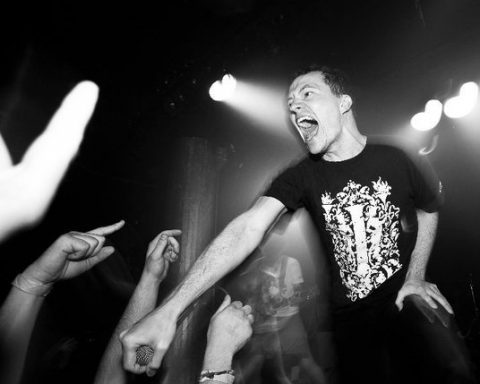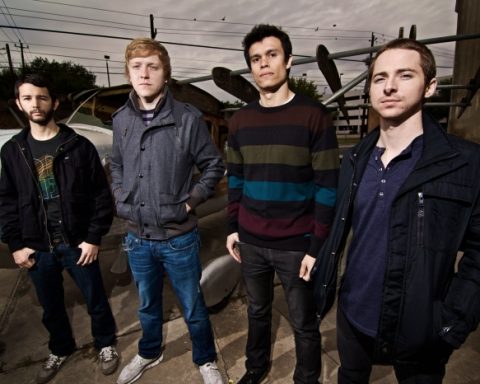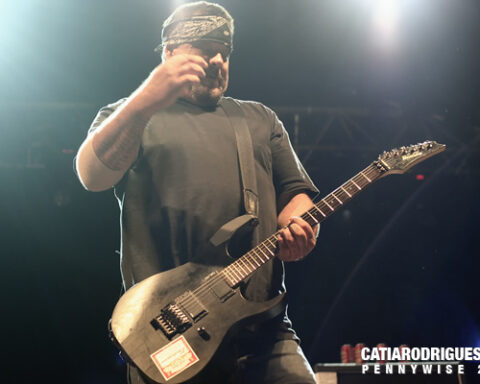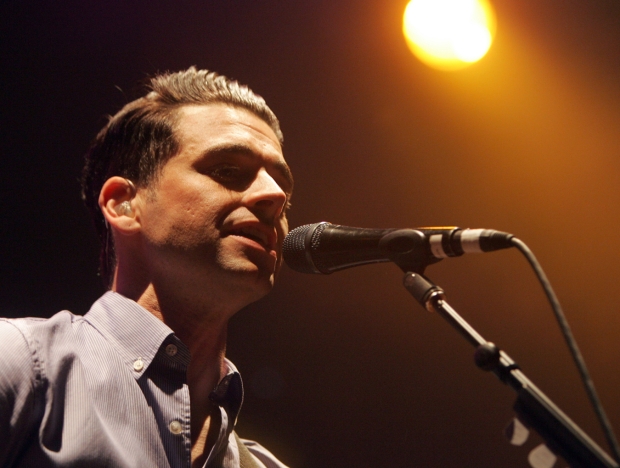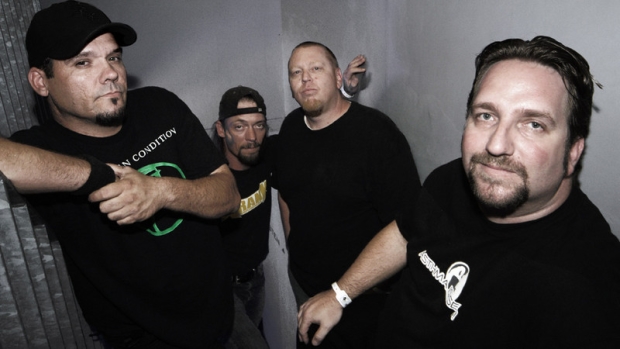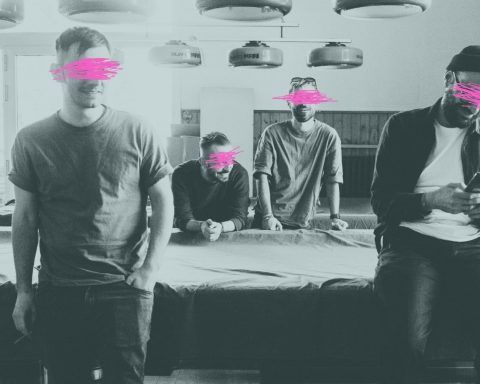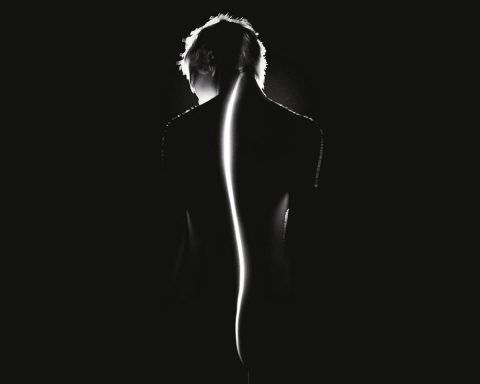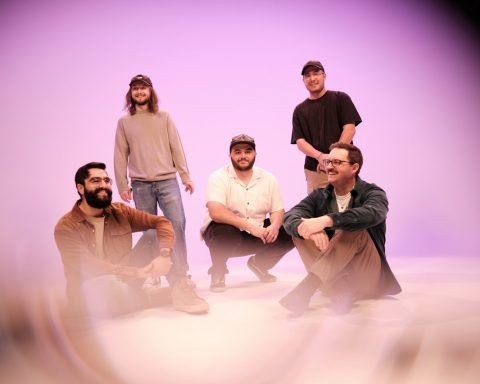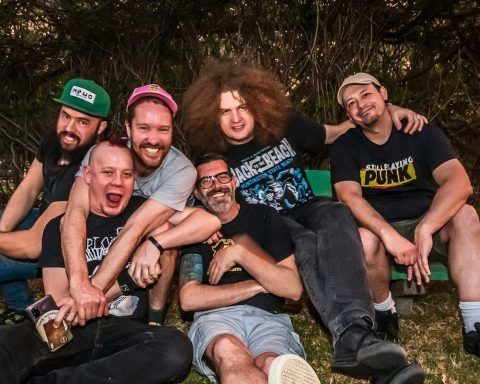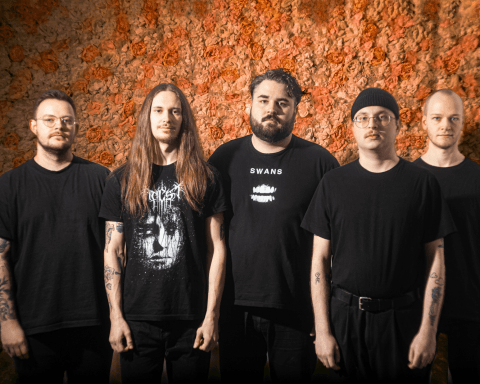Yes, I know we don’t normally cover rap music but our friends over at CVLT Nation just recently did an interview with PUBLIC ENEMY‘s Chuck D.
Twenty-five years ago, when you guys released your first record, did you see yourself in your fifties touring with the same band and still releasing records?
Fuck yeah! Yeah, for sure; the Rolling Stones were always our model. That’s why we call ourselves the Rolling Stones of the rap game. I don’t know if I’m Mick and Flavor’s Keith or vice versa. Maybe I’m Mick, because I’m the lead singer, and Flavor’s my support; but really, he’s the star and I’m down to play the backbone. Why not? They were always a great barometer for seeing somebody do their thing. When I decided to do it 25 years ago, I was already 27, so I said, once I started doing something I would be doing it for real.
So once you started it, you knew you were going for it full force?
Well yeah, I mean, I don’t make impulsive decisions – it took me a while to agree to make records, and it took me a while to say, ok this is what I’m going to do. I had my mind set on being a service person in a behind-the-scenes area, but over the last 25 years I’ve done a lot of behind-the-scenes stuff as well, so I kind of satisfied that urge by doing a lot of structural things.
Most groups can barely hold it together to get one or two records out. So with all you guys have been through how have you been able to hold it together for 25 years and countless records?
Studying other genres. Being really amazed by other genres and the history of music. Also, being able to travel the world. I think if we had not travelled outside the United States as much, our longevity definitely would not have been there. I think being able to look at other art forms as great templates is what gave us our sustaining power. That really came from the respect of collecting records – when you collect records and you understand what you’re doing, you’re able to put into good perspective where you’re at with your art form.
How was it making this record compared to the Bomb Squad production days?
This was actually an expansion, an expanded idea of the Bomb Squad in a new century. The Bomb Squad story is like five guys in a room, and we did an assembly line, piece by piece. Well, this was sort of like you’ve got 14 little Bomb Squads across the terrain, and still it has to come together with the hub of one major head producer, Gary G-Wiz, coordinating everybody’s virtual labs around the world into one solid statement. So it was an expanded Bomb Squad idea. Everybody was privy to who the Bomb Squad was, and they already had in their mind if they had to work with Public Enemy what kind of direction they would lend to the overall direction. People like Z Trip, Bumpy Douglas, Freddy Foxxx, Divided Soul, Shamello and his team. Then it was up to myself and Gary G-Wiz to be able to make a cohesive statement out of the contributions, with the way you follow the rock and roll ethic of never repeating yourself, but also you have a similarity in your technique, as opposed to the sound.
So this is just pushing the Bomb Squad idea as far forward as you can and adding more chefs in the kitchen?
Exactly. But it wasn’t like we would get this from this person, and this from this other person – it wasn’t that haphazard. This was more like: this is the plan, and you’re looking at a football field, and everybody is running their play, but it syncs. We had to have a musical texture of what the songs were about, because I don’t write songs just to meander no place at all. There had to be some substance that musically reflected the angle and direction of where we were going and what were about. I think that was reached musically for a lot of the beats.
I know that the follow up to this will be a companion album titled The Evil Empire of Everything. When and what should fans expect from this in relation to Most of My Heroes?
The records are coming out as twins kind of close to each other, one on July 13th and the other on Sept. 11th. We were kind of saluting our new digital distribution aggregation model, Spit Digital, which was making a statement that, in the past, the artistic release of records was impossible, because at the end of the day we still had factors that determined the market – like warehouses, shipping, distribution. All these areas that determined what was feasible and what was possible, now they have less of a voice as far as what will be delivered in the digital realm than they did in the physical realm. That’s why Spit Digital is the underlying story to the release of the Public Enemy album. I think Most of My Heroes was straightforward and hard-swinging with its collaborating. I think Evil Empire is a little more eclectic, and it’s doing a lot more introducing of concepts and also contributors. These albums are twins, but they are fraternal, because Evil Empire deals with the surroundings we exist in today, and how we are even kind of tackled by these situations. There is a song called “Beyond Trayvon” on the record that actually introduces Public Enemy’s sons; the name of the group is NMESUN, so the sons of Public Enemy are actually addressing the society beyond Trayvon and black life, especially young black life – always tip-toeing on the edge of danger from all aspects. There’s a song called “Everything,” and if Otis Redding was alive and could rhyme, this is what I think he would have came up with, a story-moral everyone can feel. We have things like that on the Evil album that are very clear in their meaning.
How did being a part of the label artist relationship of the past help you better deal with your career and that of the younger artists you work with?
Well, the conversation is, hey, we’re not a bank, let’s do it together from scratch. We’re not a banking system, because a banking system is basically what those corporations were. They could satisfy you in the beginning by throwing you a check and not really knowing what you were going to do. I think that I also learned that digital afforded me a window of a lot more activity instead of being stagnant.
The rest of the interview can be read here.





